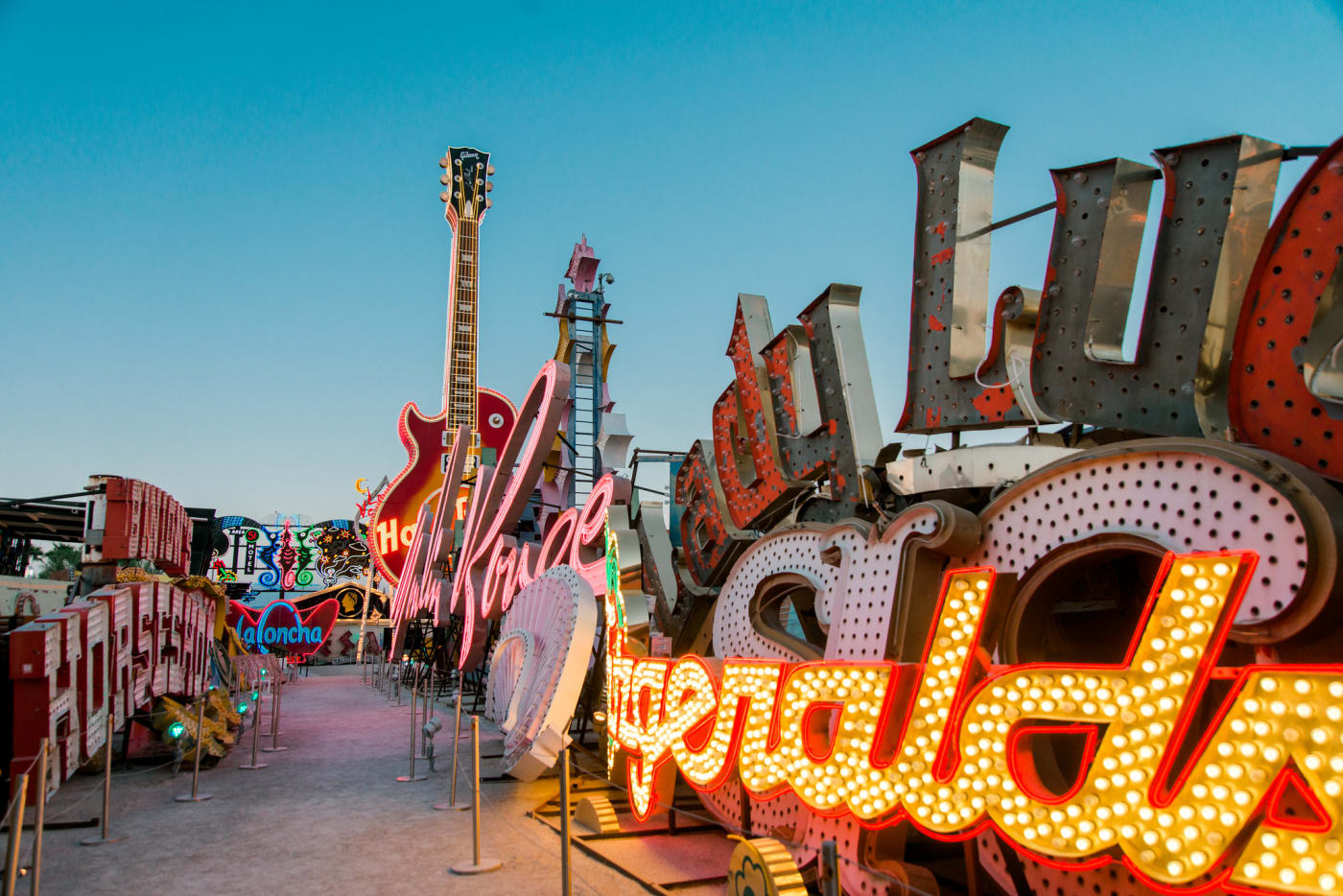Stardust Hotel & Casino

Please position yourself in front of the illuminated Stardust Resort & Casino sign, across from the Lido de Paris signage.
The Stardust Resort & Casino, opened in 1958, embodied the excitement of the era’s Space Age, with its mega-pylon designed by Ad Art’s Paul Miller. Once deemed the “Queen of The Strip,” Miller’s signage was erected in 1968. This large sign, the pieces of which are now located throughout The Neon Boneyard, topped out at a record height of 188-feet tall by 90-feet wide. It featured a beautiful pastel multicolored plume of four-pointed stars rising into the gleaming desert sky, evoking the themes of exploration and scientific progress of the Space Age. The launch of Sputnik in 1957—the first artificial satellite sent into orbit—marked the start of this period, and its stylistic influence can be observed on everything from furniture to automobile design. Vehicles with ornamental tailfins were popular during the Space Age, architects designed upswept roofs buildings that mimicked space vessels, and logos of the period, such as that of the Stardust, incorporated starbursts and satellite shapes. The style of The Neon Museum’s La Concha Visitors’ Center, formerly the lobby of the La Concha Motel, is rendered in a particular Space Age design typology known as Googie. With its origins in Southern California, Googie derives its name from West Hollywood Coffee shop designed by John Lautner, a student of prolific architect Frank Lloyd Wright.
The red Stardust letters were designed by Kermit Wayne from YESCO (Young Electric Sign Company), and were part of a billboard located on the interstate, intended for drivers coming to Las Vegas from California. The Stardust saw Wayne move away from the severe functionalist design of his previous work, such as the bullnose entrance to the Golden Nugget, which married practicality and aesthetic in both design and architecture. With the Stardust, Wayne incorporated motifs related to the atomic age and intergalactic exploration of the period, bringing to life the sign’s futuristic, cartoon-like font style.







